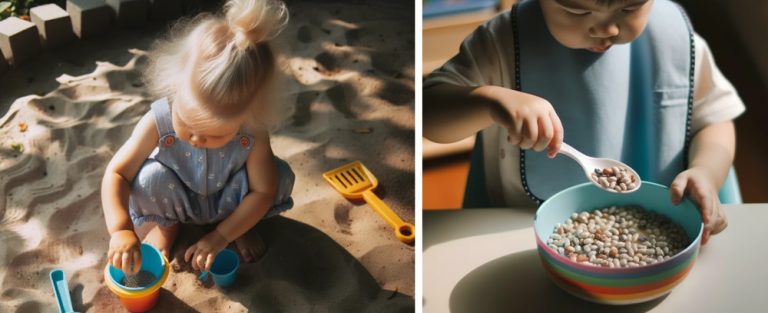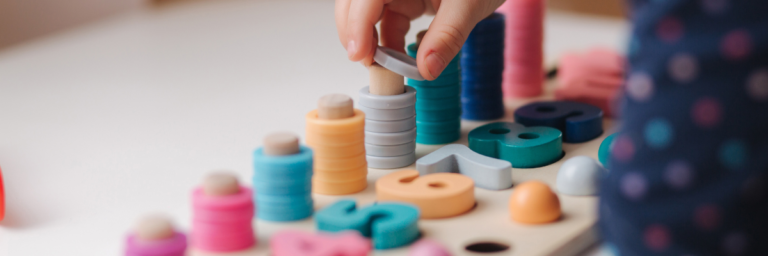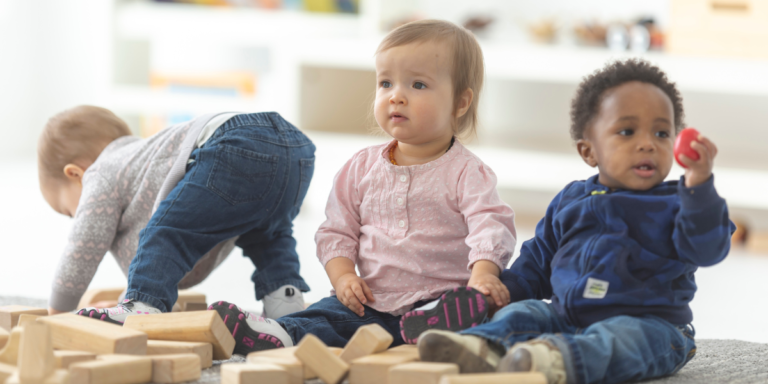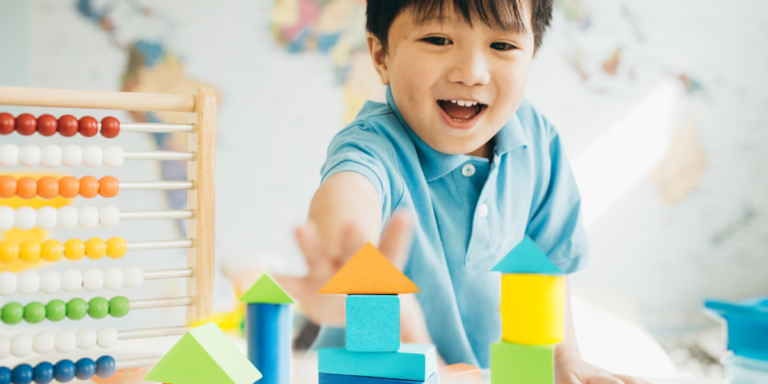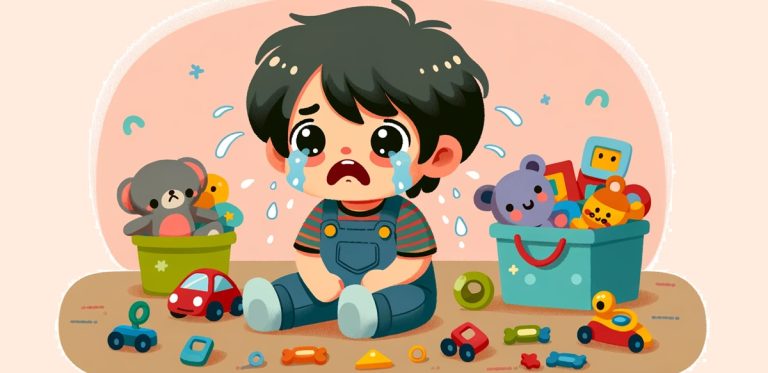Pretend Play: 7 Key Benefits for Kids
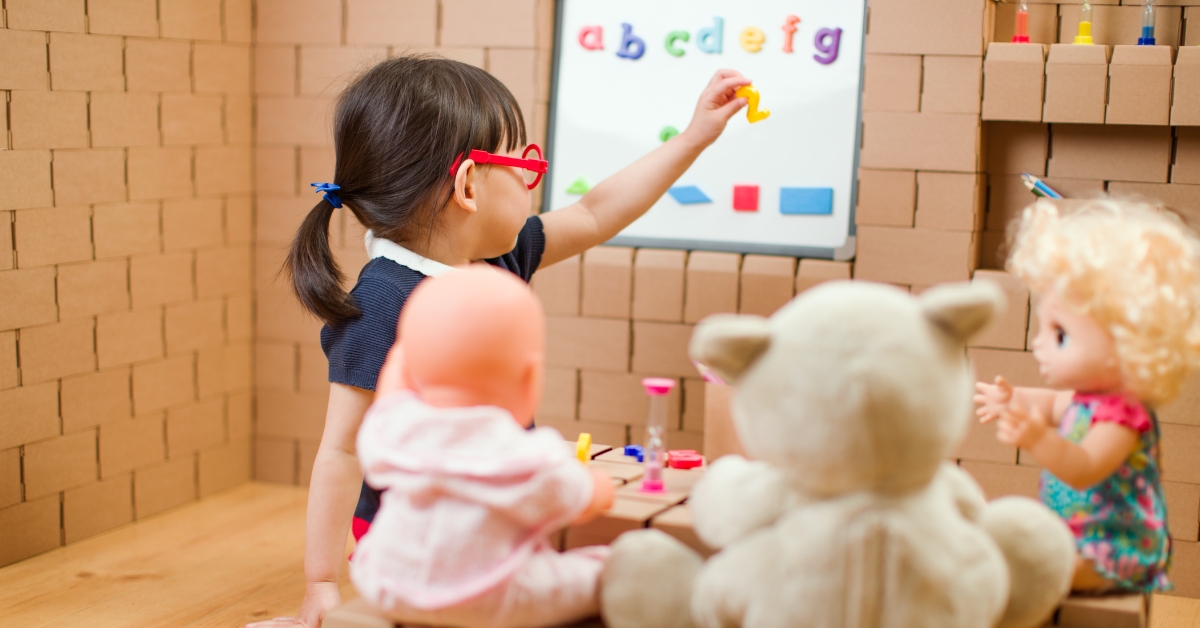
Pretend play, also known as imaginative or make-believe play, is when children use their creativity and imagination to take on roles and act out scenarios. Pretend play involves roleplaying, using props, and making up imaginary worlds. Examples include playing house, pretending to be superheroes, having tea parties with stuffed animals, acting out stories with toys, and turning cardboard boxes into forts or spaceships.

7 Benefits of Pretend Play For Kids
Pretend play allows kids to explore new ideas, experiment with identities and situations, and express creativity in a safe, enjoyable way. While pretending, children can develop language skills, emotional intelligence, critical thinking, and more. Here are 7 of the most important developmental benefits of pretend play for kids.
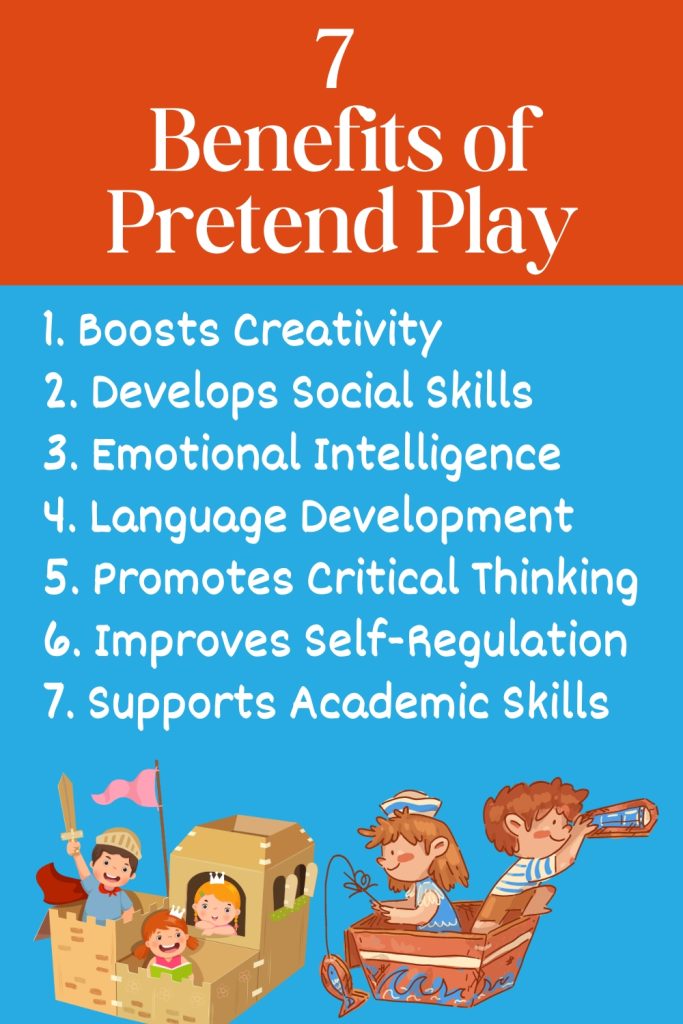
1. Boosts Creativity
As kids imagine new personas and storylines, pretend play exercises creative thinking. Coming up with unique ideas, improvising narratives, and finding new uses for objects all spark innovation. The freedom of make-believe fuels imagination and inventive problem-solving.
2. Develops Social Skills
Interacting and cooperating with others during pretend play teaches social skills. Kids learn to communicate ideas clearly, take turns, compromise, and work as a team. Role-playing diverse scenarios builds empathy and understanding. Pretend play creates a safe space to navigate social roles.
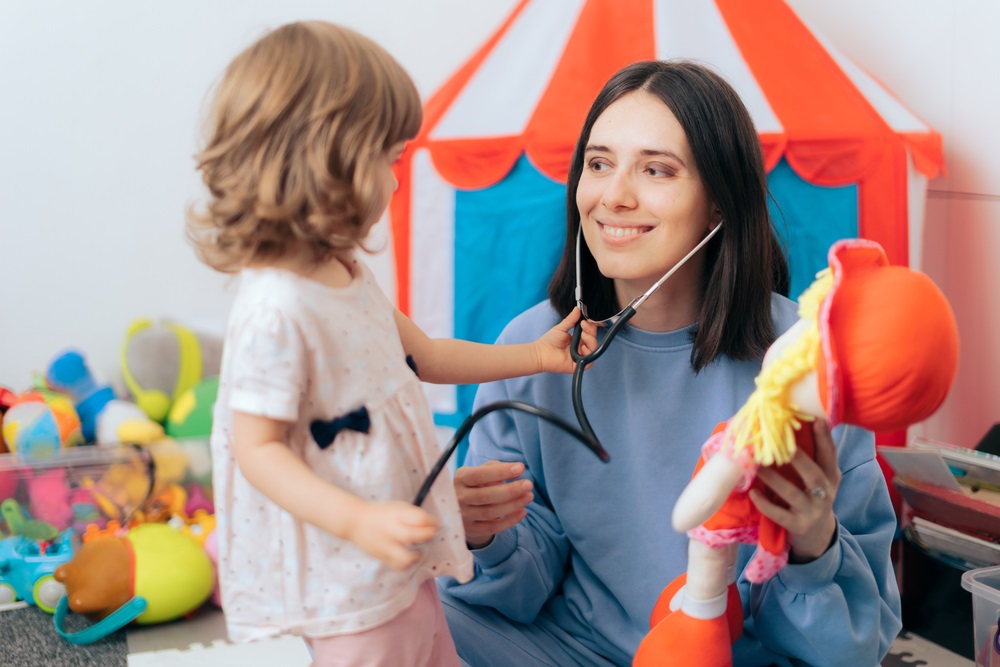
3. Enhances Emotional Intelligence
Trying on different emotions and perspectives allows kids to develop stronger self-awareness and emotional intelligence. Pretend play lets kids express feelings, understand others’ emotions, and build resilience through imagined challenges. Working through scenarios promotes emotional growth.
4. Fosters Language Development
Pretend play provides an engaging outlet for kids to practice communicating. Making up narratives, assigning roles, and interacting with others greatly improves vocabulary and conversational abilities. Kids learn to organize thoughts, articulate ideas, use tone and expression, and gain listening skills.
5. Promotes Critical Thinking
As kids encounter obstacles in their imaginary worlds, they engage critical thinking to resolve issues. Pretend play teaches kids to assess situations, make decisions, solve problems creatively, and apply knowledge from past experiences. Practicing this strengthens cognitive skills.
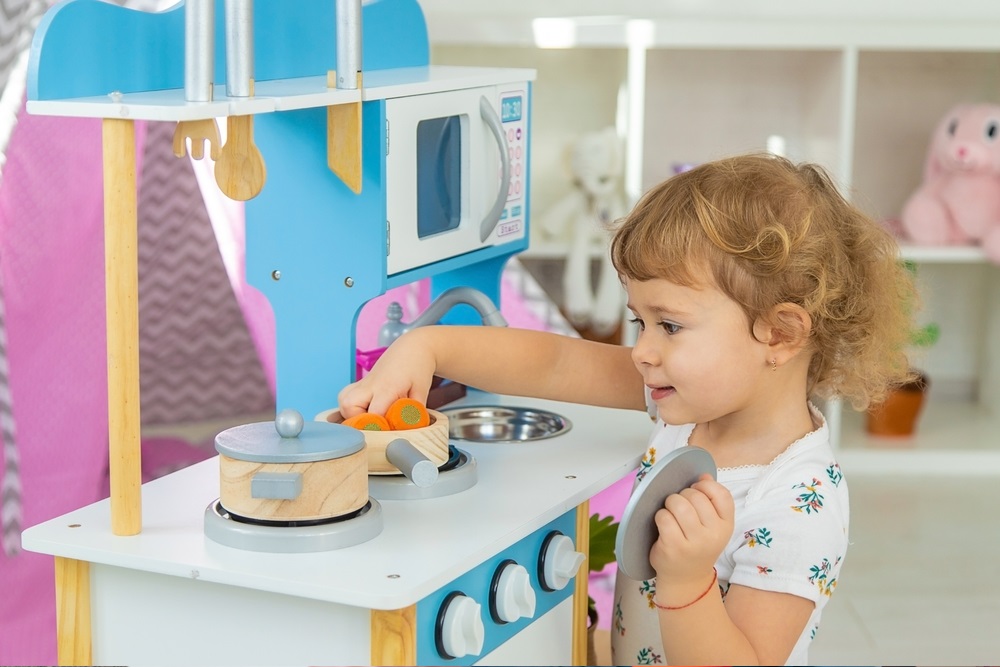
6. Improves Self-Regulation
Staying focused in roles and cooperating with others during pretend play reinforces a child’s ability to self-regulate behavior. Make-believe requires paying attention, controlling impulses, and persisting through challenges. Mastering self-discipline in pretend scenarios develops these skills.
7. Supports Academic Skills
The benefits of pretend play even extend to building academic skills. Make-believe enhances language and literacy as kids create storylines. Pretending to be teachers or using props as learning tools fosters interest in the subject matter. Quantifying items for sale at a pretend store develops math awareness.
How Parents Can Engage in Pretend Play With Kids
Parents can encourage pretend play by providing dress-up items, designating a play area, keeping props like blocks and dolls on hand, rotating toys to maintain novelty, and participating in roleplaying. Read imaginative books, share your own childhood pretend play memories, and let kids take the lead in dreaming up scenarios. Supporting pretend play allows kids to reap many developmental rewards.
3 Top-Rated Pretend Play Toys

This realistic wooden cleaning set lets kids pretend to clean with their own broom, mop, and duster, helping them learn and play independently while building skills and confidence. It's an ideal gift for 3 to 6-year-olds, encouraging them to engage in screen-free, imaginative play and develop coordination and responsibility.

The Melissa & Doug Super Smile Dentist Kit is a 25-piece set that lets kids pretend to be dentists, treat teeth, and learn about dental health, making it fun to practice brushing and care for teeth. It's a great gift for children ages 3 to 6, helping them play without screens and feel less scared about real dentist visits.

The Melissa & Doug Super Smile Dentist Kit is a 25-piece set that lets kids pretend to be dentists, treat teeth, and learn about dental health, making it fun to practice brushing and care for teeth. It's a great gift for children ages 3 to 6, helping them play without screens and feel less scared about real dentist visits.
6 Ideas for Pretend Play
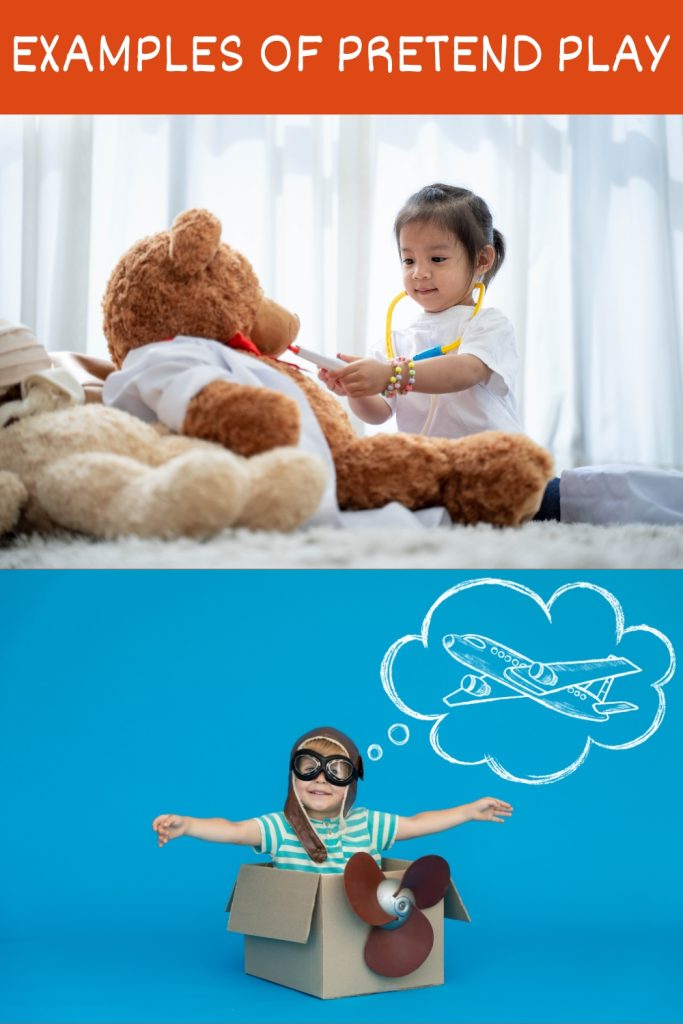
Pretend House Play
Set up a little pretend house using furniture, dolls, plastic food, and dress-up clothes. Kids can role-play being parents, siblings, pets, and more as they go about their day in the house. This lets kids experiment with family roles and dynamics.
Pretend Restaurant and Cooking Play
Turn your play kitchen into a pretend diner or restaurant. Kids can take turns being customers, servers, chefs, and managers. Making “food” out of play dough and writing down orders builds creativity and early writing skills.
Pretend Superhero Play
Become crime-fighting superheroes who save the day using special powers and costumes. Kids will come up with exciting stories as they defeat bad guys and help others in need. This builds confidence and imagination.

Pretend Zoo Play
Bring stuffed animals and plastic wild animals to life by turning your home into a pretend zoo. Kids can mimic animal sounds, movements, and behaviors as they role-play as zookeepers, vets, and visitors. This play builds empathy and caring.
Pretend Doctor Play
Set up a pretend doctor’s office or hospital using toy medical kits. Kids can role-play being doctors, nurses, patients, and medical assistants. They’ll use instruments to check heartbeats, bandage injuries, and act out checkup routines. This play builds caregiving skills and demystifies doctor visits.
Helpful Pretend Play Videos
Video #1 – How to Create a Successful Dramatic Play Learning Center in Preschool
Video #2 – 5 Pretend Play Activities to Try at Home | ANIMATED
Video #3 – Rainy Day Ideas For Kids ☂️🌧️ | Pretend Play | Danny Go!
Final Takeaways
Pretend play is not just fun and enjoyable for kids. It offers incredible cognitive, social, and emotional benefits. When kids engage in imaginative make-believe scenarios, they boost creativity, develop better social skills and self-regulation, build language and academic skills, and gain emotional intelligence. Let your kids reap the rewards by fostering pretend play!

